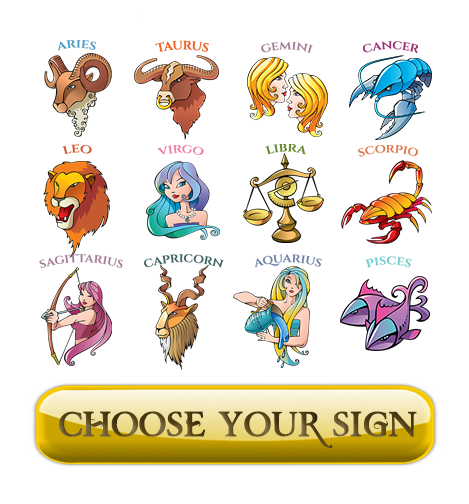Watch as Florida Panthers forward Carter Verhaeghe stuns Presidents’ Trophy winner Boston with an overtime snipe, sending them to the next round to face the Maple Leafs.
You can see it already: Kristaps Porzingis, all 7-foot-3 of him, catching the ball at the elbow, turning to face the basket and having Dillon Brooks so far up his jersey the Latvian star might end up getting one of the Mississauga-born defensive ace’s braids caught in his teeth.
Flustered, without any room to get his feet set to shoot and terrified to put the ball on the floor (where Brooks will simply snatch it), Porzingis bails out and sends it to Washington Wizards teammate — and fellow Latvian — Davis Bertans, who has been running off every screen available, but completely unable to gain any space on Lu Dort, the Montreal-raised stopper who can put fear into NBA stars ranging from Damian Lillard to James Harden.
Finally, with the shot-clock winding down, the ball comes back to a relocated Porzingis, who heaves up a contested prayer that results in a long rebound falling to the hands of Canadian guard Shai Gilgeous-Alexander, who sprints the length of the floor for the easy lay-up.
Rinse and repeat that enough times and Canada should advance to the second round of the FIBA Basketball World Cup, which runs from August 25th-Sept. 10th in Philippines, Indonesia, and Japan.
The scenarios can begin to be played out in people’s minds, now that the draw is complete, the culmination of considerable fanfare in Manila on Saturday night (or early Saturday morning Eastern time). Word is the Canadian coaching staff — yes former Raptors head coach Nick Nurse remains on the job — was starting their film study moments after the draw was done.
Canada didn’t exactly get a clear path for a chance to play for a World Cup medal. Objectively, it’s one of the more difficult routes and their opportunity to qualify for the Olympics in Paris in 2024 with a strong finish this summer wasn’t exactly handed to them.
But it’s not as bad as it could have been.
The Latvian match-up is key. The rising European nation — they were 9-1 in World Cup qualifying, winning their group even though they are ranked 29th in the world — joins Canada in Group H along with No. 5-ranked France and No. 43 Lebanon.
Canada will have to finish in the top two of those four teams to advance to the second stage of group play, where they will be joined by the top two teams from Group G — most likely No. 1-ranked Spain and No. 13 Brazil.
From there they would again have to finish in the top two to advance to the sudden-death quarterfinals. Getting at least that far will also likely be a prerequisite for securing a spot in the Olympics next summer.
In the first stage of group play, France will either be a quality opponent featuring stalwarts Evan Fournier, Rudy Gobert and Nicolas Batum, along with a long list of top European pros, or a potentially gold-medal favourite bolstered by the additions of projected No. 1 overall pick Victor Wembanyama and — the ultimate wild card — Philadelphia 76ers star Joel Embiid, who has indicated he’s open to playing for France, where the possibility of a starring turn at the Paris Olympics is a likely lure.
In any case, any iteration of France will be a tough out, which is why, presuming a group stage victory over Lebanon, winning their match-up over Latvia is essential.
The way the World Cup draw is formatted, it was inevitable that No. 15 Canada would be paired with at least one podium favourite in the first group stage. Serbia and Lithuania might have been slightly preferred options, but it’s really hair-splitting. The real question was who the so-called third-ranked team in the group would be. China (27th but fading in FIBA’s rankings, which factor results going back eight years) and No. 32 Georgia would have been easier opponents on paper, whereas Latvia opened plenty of eyes when they went 9-1 in European qualifying, including summer sessions wins over Slovenia, Serbia, and Turkey.
So, yes, envisioning the likes of Dort and Brooks using their strength and physicality against Bertans and Porzingis, and Gilgeous-Alexander cleaning up the loose ends, offers some comfort.
Presuming Canada advances to the second group stage and things play to form in Group G, they would most likely be in a foursome including Spain, Brazil and France, needing to finish second to advance to the quarterfinals.
In this respect, Canada does catch a break. Brazil’s 13th ranking is a bit generous based on recent international results. Out of the other potential opponents that could have been placed as the second-seeded team in Group G, Brazil is a more welcome matchup than Greece, Italy, or Germany, ranked 9th, 10th, and 11th, respectively.
So, presuming Canada can win against Brazil, the issue then becomes: can they beat France or Spain?
France is TBD, given the range of possibilities with their roster, but Spain offers some promise.
Sure they are both the defending World Cup champions from 2019 and the defending EuroBasket champions from last summer, but they’re not quite the powerhouse of the past.
Their ‘greatest generation,’ anchored by the Gasol brothers and featuring Juan Carlos Navarro, Rudy Fernandez, Jose Calderon, Jorge Garbajosa, and others, are all well retired. Even Ricky Rubio is now 32 and was a shadow of himself this NBA season following an ACL injury. They can’t be counted out due to their tradition and the way throwing on a national team jersey seems to turn NBA journeyman like brothers Willy and Juancho Hernangomez into superstars, but they are more vulnerable than their No. 1 ranking would suggest.
A safe way to put it: it’s likely that Spain and France (assuming they don’t have Embiid) are at least as worried about Canada and it’s potentially deep, fast, and skilled roster of NBA talent than the other way round.
Getting to the quarterfinals would — along with giving them a shot at surviving the single-elimination format and play for a medal — also give Canada a chance to match or better their all-time best finish at the World Cup, which is sixth place finishes in 1978 and 1982.
But perhaps the more significant prize would be putting Canada in the driver’s seat to qualify for the 2024 Summer Olympics in Paris.
There are seven teams from the Americas in the 32-team World Cup draw and the top two of those seven will qualify for the Olympics.
One of the disappointing elements of the way the draw went Saturday was that even though Canada was far and away the most dominant team in the Americas in qualifying, compiling an 11-1 record and a world-best +351 differential, they have the most difficult path to the second round of any of the other teams from their region.
For example: No. 23 Dominican Republic only has to finish ahead of No. 41 Angola and No. 40 Philippines to come out of Group A; No. 20 Puerto Rico only has to finish ahead of China and No. 62 South Sudan, and so on.
It’s not completely unrealistic, though admittedly mathematically unlikely, that all seven Americas teams are among the 16 teams that move to the second stage.
But once in the second stage, Canada would control their fate, requiring a win over Brazil and one more against either France or Spain. Not easy, but doable. Elsewhere it’s hard to see any other team from the Americas besides the USA making it to the quarterfinals.
If Canada takes care of business, an Olympic berth, an all-time best finish at the Worlds, and maybe even a podium would be on the table.
Canadian basketball fans know better than to get their hopes up, but it’s OK to dream.




























